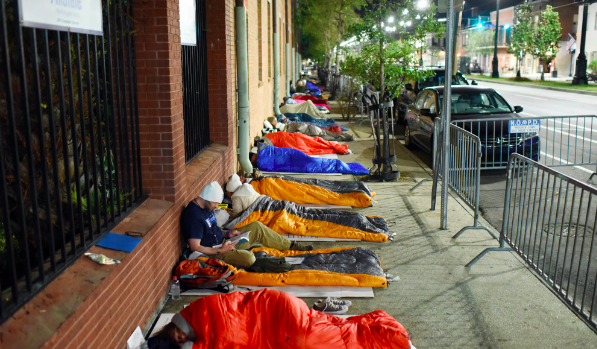A proposed bill in Florida has raised concerns as it could potentially restrict individuals without homes from sleeping in public buildings and on public property without a permit. The bill has sparked reactions from both those experiencing homelessness and advocates. Critics argue that when shelters are full, public spaces become a crucial option for those without homes. Some express the view that instead of restricting public spaces, efforts should focus on providing more housing solutions.
Under the proposed legislation, if a county designates an area for the homeless, it must meet certain criteria, including having public restrooms, 24-hour security, and access to behavioral health services. However, concerns are raised about the practicality and adequacy of such designated areas. Advocates argue that the bill does not adequately address the underlying issues contributing to homelessness, such as the lack of affordable housing and job opportunities for individuals with criminal records.
Volunteers and advocates emphasize the need for comprehensive solutions, including opening more housing options and addressing the challenges faced by those with criminal records in securing employment. Mayor Donna Deegan introduced a task force bill that allocates funds to address homelessness, including emergency rental and eviction protection. However, some argue that the proposed bill falls short of addressing the broader challenges faced by the unhoused population in the city.
Business owners in the area have expressed concerns about the impact of homelessness on their establishments, citing issues such as cleanliness and customer perception. While acknowledging the challenges faced by business owners, advocates stress the importance of finding compassionate and effective solutions that address the root causes of homelessness rather than imposing restrictions on public spaces. The proposed bill has sparked a broader conversation about the intersection of public policy, homelessness, and the need for comprehensive support systems.

